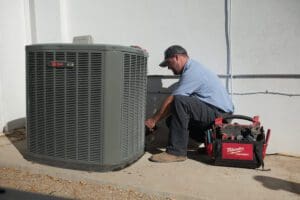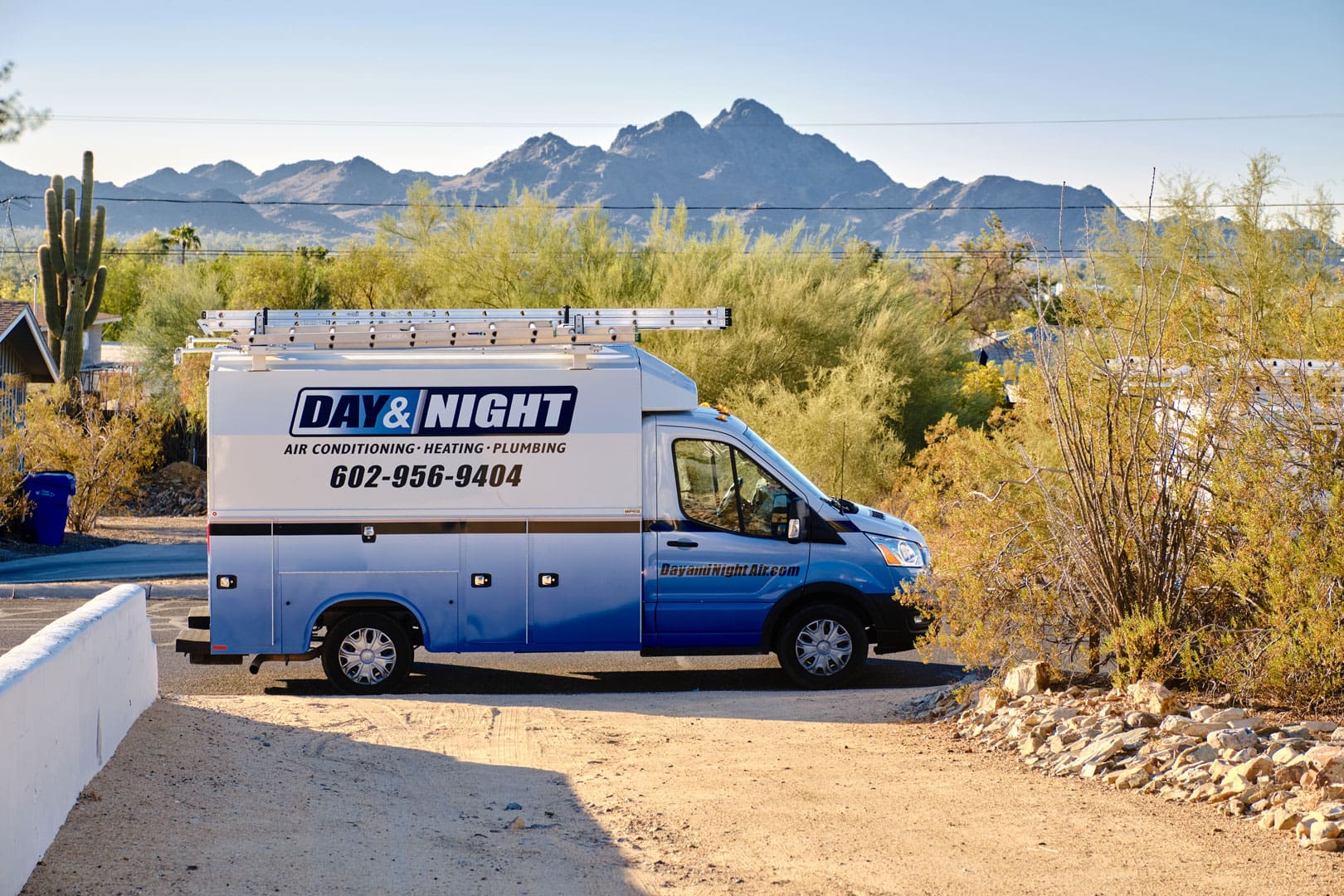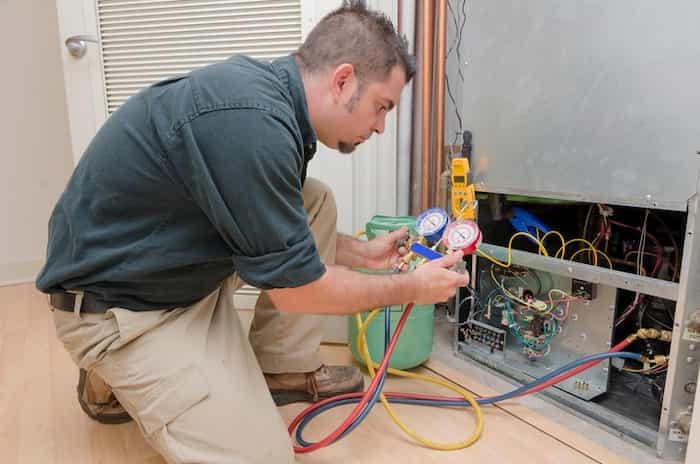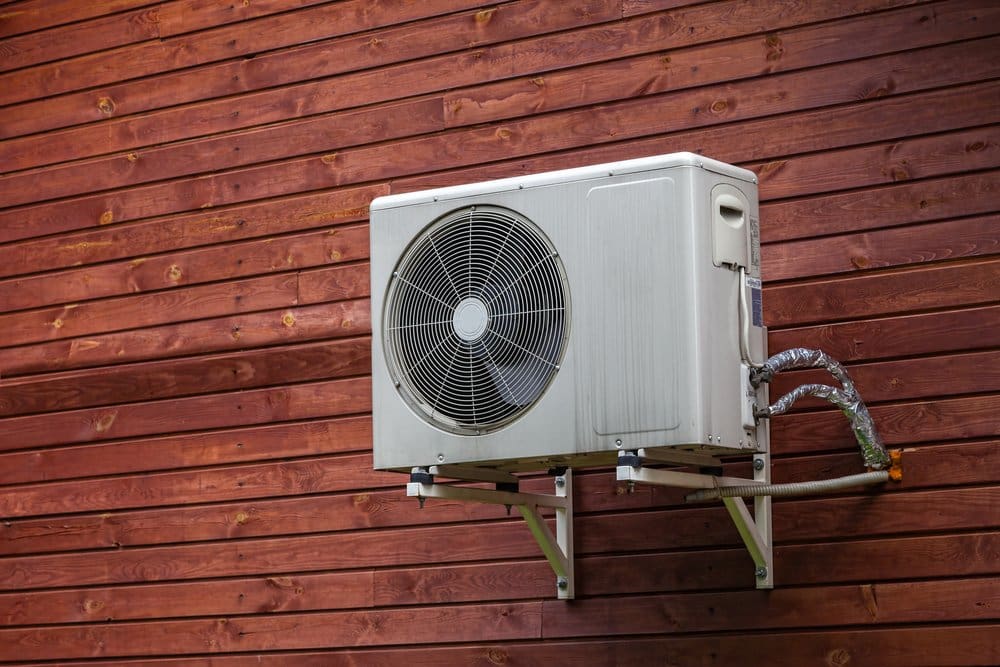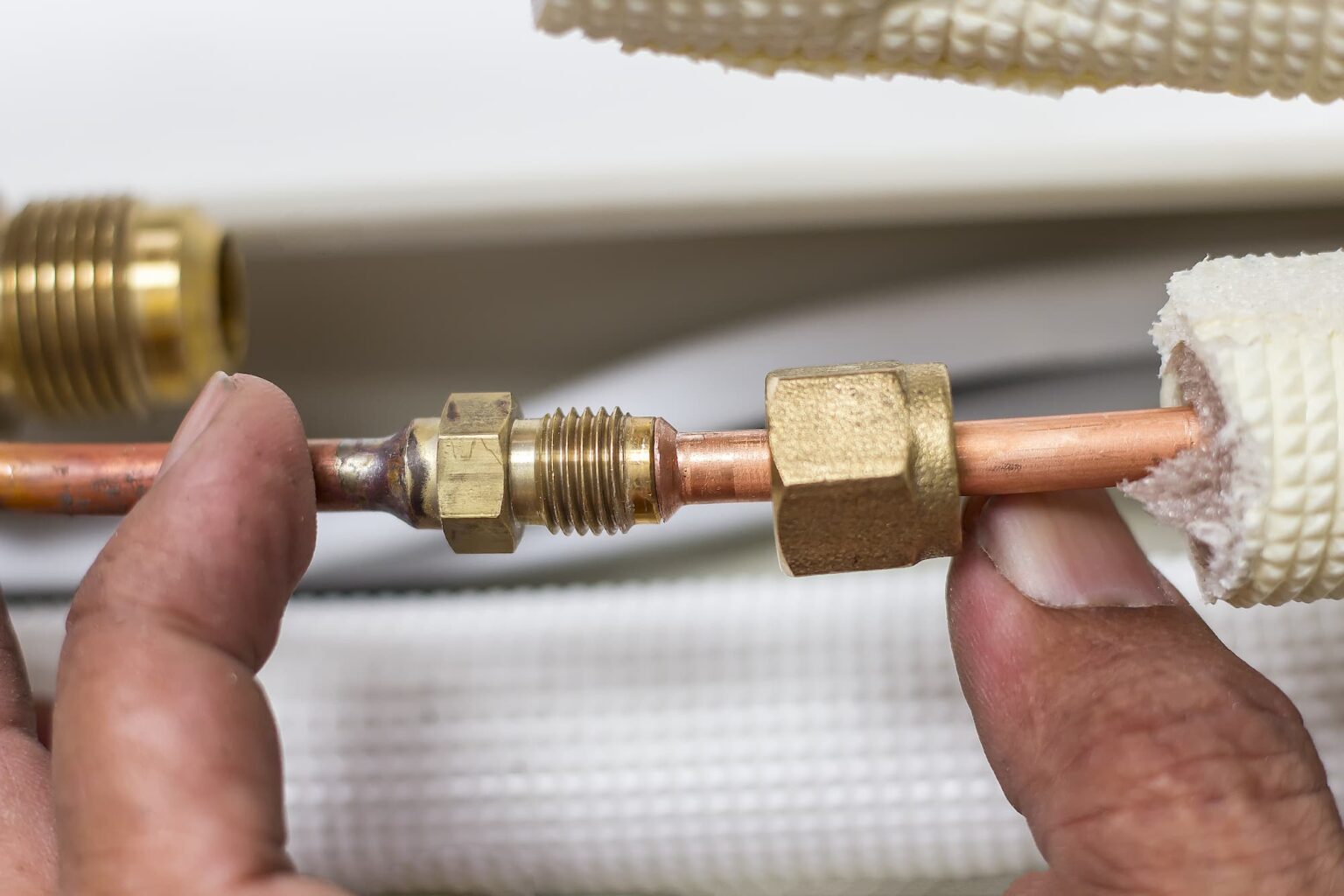While it’s true that spending time outdoors exposes you to a mixture of fresh air and air pollutants, the same can be said about the quality of indoor air. Most individuals in Phoenix spend a large volume of time inside buildings, whether at home or at the office, but don’t often think about the quality of air in these indoor areas.
Luckily, there are ways to improve the air inside your home as well as methods of pollutant prevention that will help maintain that quality. One of the easiest, most convenient and most efficient ways to improve home air quality is through the use of an air purifier. Through researching the benefits of an air purifier, you can discover the answers to the most common initial questions, such as “What does an air purifier do?” and “How do air purifiers work?” in order to see if a purifier would be beneficial to you.
Types of Indoor Pollutants
Pollutants present inside the home stem from a variety of sources. Some, such as dust or pet dander, can originate inside the home and circulate through your HVAC system through regular everyday activities. Even the most well-maintained and regularly cleaned homes experience the stirring up of dust through regular activities, which leads to circulation.
Household illnesses and other sources can sometimes also lead to airborne bacteria particles indoors. Mold spores are also common in the home and can be stirred up when cleaning or renovating. If you or a family member is a smoker, even if the smoking is only done outdoors, smoke odors from clothing and the body can circulate throughout the home. Anything from off-gassing furniture and floor coverings to everyday household cleaning products has the potential to reduce the quality of air inside your home.
Other types of indoor pollutants originate outdoors and migrate inside through open windows and doors or are carried in by individuals or pets. The best example of this is pollen, which is a common allergy trigger. Any outdoor air quality problem can become an indoor issue when smoke, vehicle exhaust, and other particles are tracked inside and then circulated through an HVAC system.
Is Your Indoor Air Quality Poor?
Although indoor air quality is an issue with nearly every home, in some homes it becomes a more critical problem that needs to be addressed. One of the most common reasons for air quality testing comes from increased allergies. Dust is a common allergy, and if larger levels are circulating through your home, you might notice an increase in allergy symptoms. This is especially true if you have attributed your allergies to pollen but notice you still experience symptoms when you stay indoors with windows closed.
How do Air Purifiers Work?
Air quality in your home can be important to your overall health, so investing in a high-quality air purifier can help ensure you and your family are breathing more clean and healthy air on a daily basis. Most purifiers work in similar ways, though the types of materials might differ depending on the type of filter the product uses. Generally, an air purifier functions by leading air from your room into the machine using a type of circulating fan.
The air then passes through a filter which will trap airborne pollutants from the air and only allow clean air to continue to pass. This clean air is then circulated back out into the room as more air is cycled through the filter. This process will continue to repeat itself, ensuring that the air is continually being swept clean of pollutants. Not only does this remove the initial contaminants from the air of your home, but it continues to remove new ones once they are introduced. The type and size of the air purifier you need will depend on the size of the room you are dealing with and what specific conditions you are experiencing.
Types of Air Filters and Purifiers
Although air purifiers are in abundant supply and easy to find, not all purifiers are created equally. Depending on the pollutants you need to have filtered out of your home or office and the size of the room you desire to treat, you might need one simple small filtered purifier or you may prefer a low-maintenance whole home purification system. No matter your needs, a type of air filter exists that is the perfect combination of financial investment, purification level, and maintenance effort.
Activated carbon filters
If your primary goal is to remove odors, smoke, and household chemicals, an activated carbon filter is a low-cost choice. However, if you are interested in cleaning the air of dust, allergens, strong odors or other contaminants, a purifier that includes a HEPA filter is the industry standard. Activate carbon filters can be combined with a HEPA filter.
Ionic air filters
This type of filter gained popularity due to its ability to send out negative ions into the air. These ions find pollutants and bind to them. The new weight of the combined particles makes them too heavy to remain airborne, so they simply sink from the air onto the (typically) positively-charged surfaces below and can be removed by traditional cleaning methods. Ionic filters do have some benefits but do not actually clean and purify the air, so they are not ideal for individuals seeking a purification system.
HEPA filter-only purifiers
HEPA filter air purifiers are the industry standard since they are able to remove smaller particles from the air than older and different types of air filters. If your purifier contains a HEPA filter, it should be able to remove not only odors, smoke, and chemicals, but also allergens such as dust, mold, and pet dander from the air. Some products contain replaceable HEPA filters which will need to be changed out according to the filter instructions, while others contain a permanent HEPA filter that will need to be cleaned according to a cleaning schedule.
HEPA filter plus UV light filters purifiers
For the cleanest indoor air, the combination of HEPA filter plus UV light filter is your best bet. This combination is able to remove the majority of common allergens and pollutants plus serve as a germicide. UV purifiers use ultraviolet light to kill airborne bacteria and help prevent the circulation of the germs into the air of your home. If you are looking for the gold standard of air purification, a system that circulates the air throughout your entire home, and contains both a high-quality HEPA filter and a UV germicidal light, this purifier is your best bet.
In addition to filter type, air purifiers also differ according to added features. Not all features are necessary, so you can decide which ones are right for your home and for your desired convenience. Examples include multiple fan speeds, timers, energy-reduction settings, oscillation, and space-saving designs.
 Benefits of Air Purifiers
Benefits of Air Purifiers
The obvious benefit of adding an air purifying system to your home or office is the resulting cleaner air that circulates. This clean air itself has benefits to you and your family as it pertains to health, quality of life, and convenience. In terms of health, cleaner air can help reduce allergy symptoms for individuals with dust, dust mite, pollen or pet dander allergies. It reduces the number of chemicals you breathe indoors. Airborne mold spores are reduced.
If your purifier contains UV bulbs, your home can experience an enormous reduction of airborne bacteria. If odors are a concern, an air purifier can help neutralize them, especially for sources such as smoke or pets. Your home should begin to smell better in general with a quality purifier. In terms of convenience, the act of trapping dust and dander in a filter helps reduce the amount that is able to settle on surfaces and build up in your home over time. This means you could end up spending less time cleaning and dusting surfaces.
How to Get the Most From Your Purifier
Like other appliances or systems in your home, an air purifier works best when operated and maintained properly. The best way to start is by understanding the user manual from your product. A professional heating and air company like Day & Night Air can also help you make the decision about what type of purifier you need, as well as the size of purifier that is recommended for the area you want to cover. Once installed, you will need to clean or replace the filters as required in order to prevent clogs or pollutant build-up, which would reduce the efficiency of the filter. Indoor purifiers also function best when windows and doors are closed, but this doesn’t mean you should not let fresh air into your home on occasion. Allowing fresh air, regularly vacuuming, and avoiding indoor pollutants when possible will all help keep your air cleaner on a regular basis. By making sure you are following proper maintenance and operation, you should be able to avoid a reduction in the lifetime production of your air purifier.
Get Cleaner Indoor Air Quality Today
Once you have decided to make your indoor air quality a priority, you should be able to get an idea about what kind of air purifier would be best suited to your home by assessing your individual health needs, size of your area, and specific pollutant exposure you want to treat. If you need help deciding on a system or need to schedule an installation of your air purifying system, contact Day & Night Air today to schedule an appointment. We service homes all over the Phoenix metro area.

